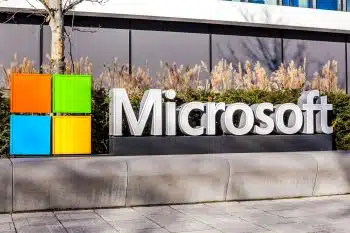Home » Spotlight » U.S. easing restrictions for foreign flights
U.S. easing restrictions for foreign flights
https://www.whatjobs.com/news/what-news-topical/u-s-easing-restrictions-for-foreign-flights

By Nagasunder in Spotlight, posted September 23, 2021
In a significant relaxation of pandemic travel jobs restrictions, the United States announced Monday that foreigners would be able to fly into the country this fall if they have proof of vaccination and a negative COVID-19 test — changes that will replace a patchwork of rules that had kept out many non-citizens and irritated allies in Europe and beyond where virus cases are lower.
The revisions, which will go into effect in November, would allow families and individuals whose travel restrictions have separated for 18 months to plan long-awaited reunions, as well as foreigners with work permits to return to their jobs in the United States.
Airlines, business groups and travelers cheered — though they also called the step long overdue. "It's a happy day. Big Apple, here I come!" said French entrepreneur Stephane Le Breton, 45, who was finally able to book a trip to New York City that had been put on hold over the virus restrictions.
The new policy will replace a patchwork of travel bans implemented by President Donald Trump last year and tightened by President Joe Biden that restrict travel by non-citizens who have spent the previous 14 days in the United Kingdom, European Union, China, India, Iran, the Republic of Ireland, Brazil, or South Africa.
The new standards, released by White House COVID-19 jobs coordinator Jeff Zients, will still require all foreign travelers traveling to the United States to confirm vaccination and proof of a negative COVID-19 test done within three days of flight. Biden would also strengthen testing requirements for unvaccinated American citizens, who will be required to be tested both before and after returning to the United States.
The stricter measures for unvaccinated Americans come as the White House moves to enforce general vaccination-or-testing requirements that may affect up to 100 million people to push holdouts to get injections.
Fully vaccinated passengers will not be required to quarantine, Zients said. There will be no immediate change to U.S. land border policies, restricting much cross-border travel with Mexico and Canada.
The travel bans had become the source of growing geopolitical frustration, particularly among allies in the U.K. and E.U. The easing comes ahead of Biden meeting with some European leaders on the margins of the United Nations General Assembly this week. "This is based on individuals rather than a country-based approach, so it's a stronger system," Zients said.
Through an effort to stimulate commerce and tourism, the E.U. and U.K. had previously agreed to allow vaccinated U.S. passengers without quarantines. However, due to the widespread coronavirus delta form in the United States, the E.U. proposed last month that some travel restrictions be reimposed on U.S. visitors to the bloc.
The Centers for Disease Control and Prevention will require airlines to collect contact information from international travelers to facilitate tracing, Zients said. It was not immediately clear which vaccines would be acceptable under the U.S. system and whether those unapproved in the U.S. could be used. Zients said that decision would be up to the CDC.
Monday's announcement was met with applause by the air travel industry, which has lost significant revenue from declines in international travel. Delta Air Lines spokesman Morgan Durrant said, "Science tells us that vaccinations coupled with testing are the safest way to re-open travel, and we are optimistic this important decision will allow for the continued economic recovery both in the U.S. and abroad and the reunification of families who have been separated for more than 18 months."
Worldwide, air travel is still down more than half from pre-pandemic levels, and the decline is much sharper for cross-border flying. By July, domestic travel had recovered to 84% of 2019 numbers. Still, international travel was just 26% of the same month two years ago, according to figures this month from the airline industry's leading global trade group, the International Air Transport Association.
According to Airlines for America, the numbers are similar but not quite as stark for the U.S., where international travel in August was 46% of that in August 2019. Arrivals by non-U.S. citizens were only 36% of the 2019 level.
The measures were also praised by business groups, which have been dealing with labor shortages as the economy recovers with surprising strength from last year's coronavirus slowdown. Employers in the United States have been posting job opportunities – a record 10.9 million in July – quicker than candidates can fill them.
Myron Brilliant, head of international affairs for the U.. S. Chamber of Commerce, said in a statement, "Allowing vaccinated foreign nationals to travel freely to the United States will help foster a robust and durable recovery for the American economy."
Source: Martins Ferry Times Leader









